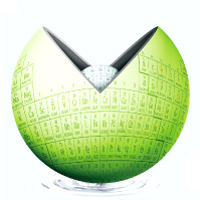
Published for geochemistry community from Geochemical Society of Japan.
Evaluation of a technique for determining Re and PGEs in geological samples by ICP-MS coupled with a modified Carius tube digestion
Geochemical Journal, Vol. 41, No. 6, P. 407-414, 2007
ABSTRACT
In the determination of Re and platinum group elements in geological samples, various techniques have been employed for digesting samples, including Carius tube, high-pressure asher (HPA-S), alkali fusion and nickel sulfide fire assay. The normal Carius tube technique is able to digest relatively small amount of sample and has a possible safety problem caused by a high internal pressure. This paper reports a modified Carius tube method which utilizes a sealed stainless steel high-pressure autoclave filled with water to prevent explosion of the tube. During heating, the external and internal pressures of the Carius tube increase simultaneously, such that the possible explosion of Carius tube can be avoided. Consequently, this technique allows a higher temperature (up to 330°C), a greater volume of aqua regia (up to 2/3 of the total volume of the Carius tube) and thus larger sample mass (12 g) relative to the normal Carius tube technique. Fairly good agreement were obtained for PGE poor mafic rocks (IPGE < 0.03 ng/g). The efficiency to dissolve ultramafic rocks and chromites at different temperatures was investigated. We demonstrate that this technique is more effective than normal Carius tube technique for ultramafic rocks and chromites containing refractory minerals and the detection limits and precision can be improved for PGE poor mafic samples. The total procedural blanks are lower than 0.003 ng for Os, 0.03 ng for Re, Ir, Ru and Rh and 0.4 ng for Pd and Pt.KEYWORDS
rhenium, PGEs, ICP-MS, Carius tube, high pressure autoclave- Published : 2007-12-20
- Released on J-STAGE : -
- Received : 2007/02/24
- Accepted : 2007/05/09
- DOI : https://doi.org/10.2343/geochemj.41.407
- J-STAGE URL : https://www.jstage.jst.go.jp/article/geochemj/41/6/41_6_407/_article/-char/ja
- J-Online ISSN: 1880-5973
- Print ISSN : 0016-7002
- ISSN-L : 0016-7002
All Issues
- Vol.59, 2025
- Vol.58, 2024
- Vol.57, 2023
- Vol.56, 2022
- Vol.55, 2021
- Vol.54, 2020
- Vol.53, 2019
- Vol.52, 2018
- Vol.51, 2017
- Vol.50, 2016
- Vol.49, 2015
- Vol.48, 2014
- Vol.47, 2013
- Vol.46, 2012
- Vol.45, 2011
- Vol.44, 2010
- Vol.43, 2009
- Vol.42, 2008
- Vol.41, 2007
- Vol.40, 2006
- Vol.39, 2005
- Vol.38, 2004
- Vol.37, 2003
- Vol.36, 2002
- Vol.35, 2001
- Vol.34, 2000
- Vol.33, 1999
- Vol.32, 1998
- Vol.31, 1997
- Vol.30, 1996
- Vol.29, 1995
- Vol.28, 1994
- Vol.27, 1993
- Vol.26, 1992
- Vol.25, 1991
- Vol.24, 1990
- Vol.23, 1989
- Vol.22, 1988
- Vol.21, 1987
- Vol.20, 1986
- Vol.19, 1985-1986
- Vol.18, 1984
- Vol.17, 1983
- Vol.16, 1982
- Vol.15, 1981
- Vol.14, 1980
- Vol.13, 1979
- Vol.12, 1978
- Vol.11, 1977
- Vol.10, 1976
- Vol.9, 1975
- Vol.8, 1974
- Vol.7, 1973
- Vol.6, 1972-1973
- Vol.5, 1971
- Vol.4, 1970-1971
- Vol.3, 1969-1970
- Vol.2, 1968
- Vol.1, 1966-1967
Current Issue:
Stats:
Impact Factor: 1.6 (2024)
Submission to final decision: 9.6 weeks (2022)




